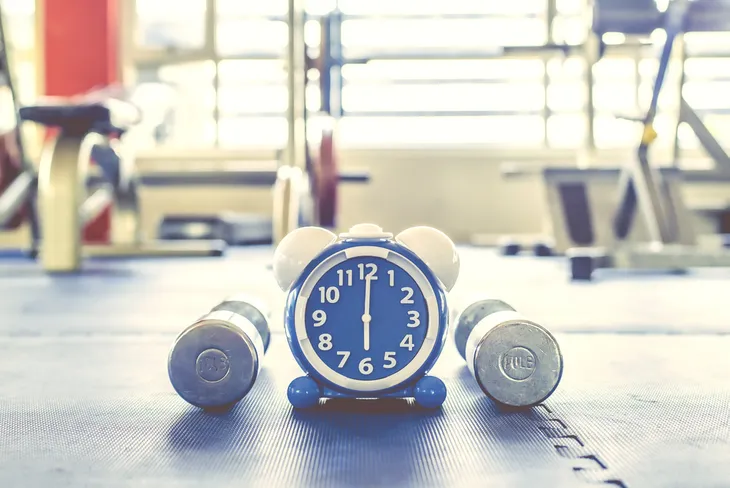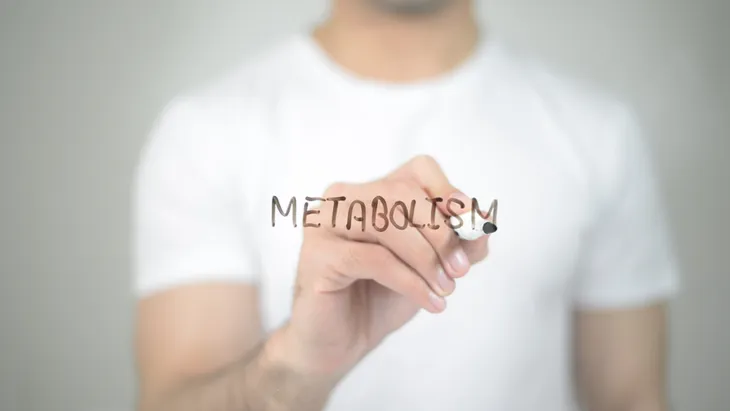I realize in saying this you’re already moaning, and hitting the snooze button on your alarm clock. However, the benefits to this timing for exercise has tremendous benefits that last all day long.
Here are six reasons why working out before your kids wake is a really great idea…
1. You’re Free at 5am
“Before the world wakes” means that your phone won’t be ringing and no meetings will be scheduled (one would hope). Pick an early hour of the morning as the sweet spot in your day that’s completely unaccounted for. This is the perfect opportunity to get your workout in and tackle the day like the superhero mom or dad you are.
By scheduling this “meeting with sweat” you not only check your first box of the day—you’ll also increase your sharpness and focus for your day at work. Dr. John Ratey, author of Spark: The Revolutionary New Science of Exercise and the Brain, says that exercise cues the building blocks of learning in the brain to positively affect mood, decrease anxiety, increase attention, and guard against stress.
2. You’ll be in a Better Mood
The beginning of the day can make or break the tone of your child’s day too. By the time you’ve finished your workout, you will be past those sleepy cranky feelings and much more alert and lively for your kids. With your mood and hormones leveled out from exercise, you’ll be in a great headspace to meet their needs in tangible ways (i.e., providing positive reinforcement). Many parents often don’t know the stresses and demands they place on themselves throughout their day. So setting apart some time for joy in the morning can really start them off on a confident foot.
On top of that, the adrenaline pumping through your body from your workout will help you focus. You’ll remember to sign those permission slips and return those library books, and maybe even send the kids off to school with matching socks. All of these things take away from the stress of a morning rush, leaving everyone happier and healthier.
3. It’s Guilt Free
OH, the parent guilt. You know the kind. The moment you do one singular thing for yourself you may doubt yourself, feel selfish, and your inner critic might suggest you give that time to your children/home/spouse instead. Many of us fall into this trap. Like the oxygen masks on a plane, the parent must take care of themselves first before assisting their children. So those morning hours when your kids DON’T actually need you provide the perfect opportunity to take care of yourself.
Most of us have good intentions as human beings. We want to do our duties and help others too. Guilt seeps in when that doesn’t always work. By finding time when nobody else needs you (like, first thing in the morning) you’ll eliminate the pulls of your life and the guilt that normally makes you skip your workout to attend to other needs. Priorities, get it?
4. No, You Won’t be Less Rested
All parents struggle with lack of sleep. Gone are the days that you put down your phone on the nightstand and didn’t wake until the alarm went off. Children are wonderful at creating havoc at all hours. Whether the stomach flu hits, a nighttime accident occurs, a sudden bad dream, or feedings wake them up, guess what, you’re waking up too. So how can a parent possibly wake up earlier to be active and still get rest?
In a study conducted by The National Sleep Foundation, researchers found that 150 minutes of moderate to vigorous activity a week provided a 65-percent improvement in sleep quality. The study also noted that participants reported feeling less sleepy during the day—compared to those with less physical activity.
5. It Takes Less Time Than You Think
Ever had your phone battery 4-percent and watched how quickly it drains to dead? That 4-percent isn’t much, but surprisingly enough (unless you’re a math whiz) that 4-percent of your day accounts for just ONE HOUR. To ask an hour out of your day may seem like a lot, especially as an already worn-thin parent. However, the reality is—it’s not so bad after all.
The Centers for Disease Control (CDC) recommends that adults get between 75 and 150 minutes of aerobic activity (ranging in moderate to vigorous exercise) per week, plus 2 or more days a week of muscle-strengthening activities that work all major muscle groups. Giving yourself 4-percent a day to get active is more than enough time to meet these requirements.
6. Morning Workouts Boost Metabolism
This lovely added bonus is called excess post-exercise oxygen consumption, or EPOC. After exercise, your body will actually increase its metabolic rate for around 16 hours. Some reports even indicate that EPOC is still effective up to 38 hours after a workout.
That increase in your metabolism may be the perfect thing to shed that leftover baby weight. You know that extra baggage that simply won’t let go of its love for your new child bearing hips? Alternatively, dads can finally shed that sympathy weight from all the late night pickles and ice cream. So go ahead and set your alarm an hour early to squeeze in some guilt-free exercise before the kids need you.









